Like many nutritional matters, there is no hard-and-fast rule as to how much calcium we need. And because each individual is different, it’s impossible to say that what is right for one person will be right for the next.
Therefore, here in the UK., RNI or reference nutrient intake value is used as opposed to the RDA or recommended daily amount. What does this mean? Well, the RNI gives a figure that is deemed sufficient for the vast majority of the population, 97.5% to be exact.
However, the amount of calcium deemed necessary to keep us healthy also, apparently, depends upon where in the world you are:
- United Kingdom recommends 700mg per day
- United States recommends 1000mg per day
Other countries also give different figures, which in some places, such as Japan, China and India can be as low as just 300mg per day.
Okay, so now we have an indefinite answer as to how much calcium you need? Where do you get it from? Well, that’s a bit more simple: one of two places. We get calcium from our diet or, if our bodies aren’t getting enough, they will take it from our bones.
Essentially, your body robs Peter to pay Paul - reabsorbing calcium from your bones to serve other important bodily functions. If this calcium is replaced by your diet, your bones will be ‘repaid’.
However, if your diet consistently fails to provide enough calcium, your body will simply keep stealing it from your bones and, eventually, they will become porous and weak. Therefore, the importance of getting adequate calcium cannot be overstated.


 Calcium is the fifth most prevalent element on Earth, and like many of our planet’s elements, it is essential for our health.
Calcium is the fifth most prevalent element on Earth, and like many of our planet’s elements, it is essential for our health.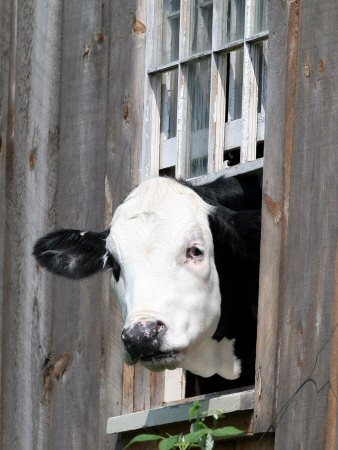
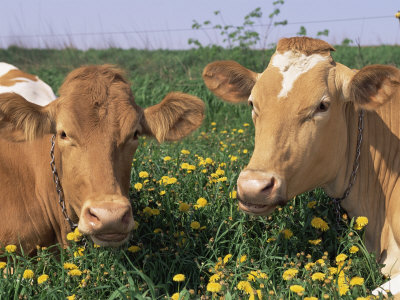







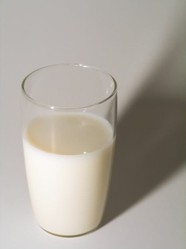

 How to Avoid College Debton 07/31/2014
How to Avoid College Debton 07/31/2014
 Was Charlotte Bronte Jealous of her Sister Anne?on 07/15/2014
Was Charlotte Bronte Jealous of her Sister Anne?on 07/15/2014
 Whose Side is Cancer Research UK on?on 07/06/2014
Whose Side is Cancer Research UK on?on 07/06/2014
 A Plot Summary of Electra by Sophocleson 07/05/2014
A Plot Summary of Electra by Sophocleson 07/05/2014
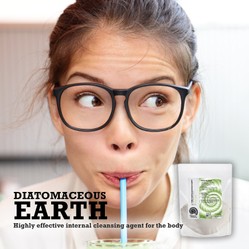
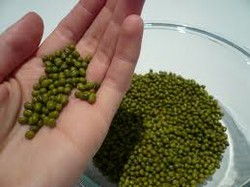
Comments
Hi again, I came back to this article, even as I remembered reading it. Had forgotten one major point about animal protein leading to loss of calcium. Am glad I opened the page again.
Hello Mira, thank you for your kind comments. I'm glad that you found the piece interesting and educational. I wanted to link to the Harvard study, but was unable to find a complete copy online; just snippets from other sources. I will keep looking, though. And if I find it, I will add it in. Thanks again.
Hello WiseFool, this was a super interesting article, with that analogy with the natural world (other animals that don't drink milk past their weaning age), with animal-derived calcium being eliminated in your urine, with that Harvard study (why not add a link to it?) linking animal milk and brittle bones, and with all the useful information on where to find calcium in veggies and fruits.
Hello, Tolovaj. You're absolutely right, it's not a decision to be made lightly. But I do think it's very important to bust the myth that milk/dairy products are our only available source of calcium, because it's, obviously, far from true. More importantly, as you say - and as I mention above - not only is it untrue that milk is our only source of calcium, it's also not even a good source of calcium. As you rightly point out, it can do our bones and joints more harm than good. I hadn't heard of algae being a good source, but I'm very intrigued and will do a little investigation. If true, I'm sure that could make an article all on its own. Thanks for your input.
Becoming a vegan should not be a decision made over night. Calcium intake is only one of problems coming with this diet. Life of a vegan brings a lot of responsibilities but this is actually good in long term, because responsible vegan starts to take care of his education and his health.
I also wrote an article about calcium intake and relation with dairy industry years ago. Bigger intake in some countries is in my opinion directly related with power of lobbies who support dairy industry. It is also known bigger milk intake leads to higher risk of osteoporosis.
As an alternative source of calcium I vaguely remember algae... not sure, but maybe interesting for your article?
Thanks!
Hey, HealthforLife. Yes, it is VERY strange. And I believe it's the same with guidelines for fruit and veg intake. Here in the U.K., we're told to have our "five a day", but in France it's ten and in Japan it's seventeen. So, there are very differing opinions on how much 'good stuff' humans need.
I find it funny how depending upon where you are your recommended calcium intake varies, LOL! A bit confusing...
Hello Katie, thanks for the comment. Glad you enjoyed the article. Cows are really gorgeous, gentle creatures and, of course, consuming dairy products; milk, yoghurt, cheese, is actually no less cruel than eating beef. In fact, in some ways, the diary industry is crueller than the beef industry. More info on that, if you're interested, here: http://www.veganpeace.com/animal_crue...
I love cows, love the images you have included here of their sweet faces, can't imagine eating one, oh that makes me sad. Oh but I digress, I'm a vegetarian would be vegan, love the food but I do eat salmon and other fish. I enjoyed reading this and have a better understanding of the vegan diet.
Hello Brenda, thanks for the comment. I'm pleased that you've found the article useful in your exploration of veganism. I don't know whether you're already vegetarian, but, if you are, I don't think the shift to veganism comes as quite such a 'culture shock.' If you'd like any more info, please feel free to get in touch.